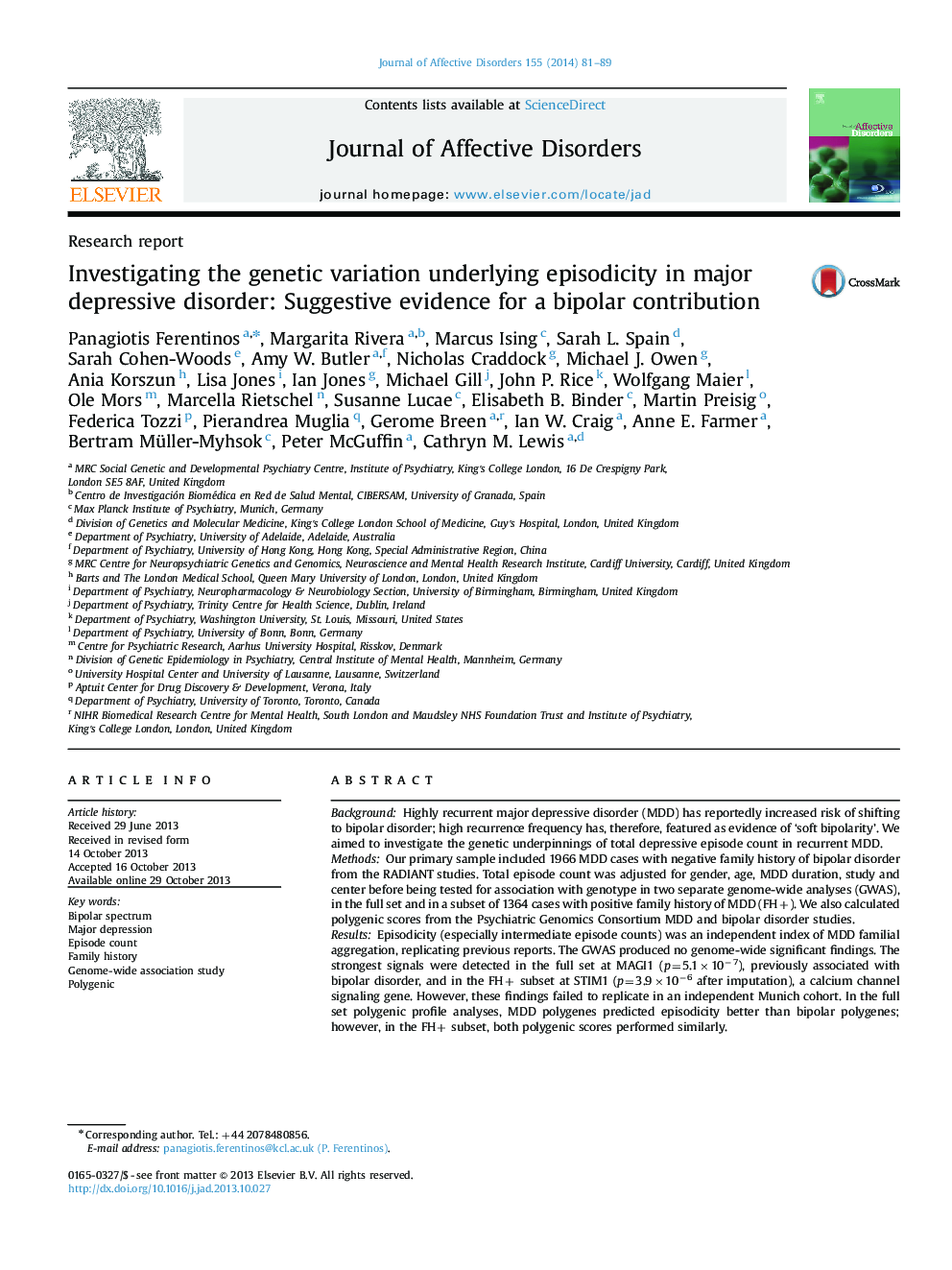| کد مقاله | کد نشریه | سال انتشار | مقاله انگلیسی | نسخه تمام متن |
|---|---|---|---|---|
| 6233292 | 1608170 | 2014 | 9 صفحه PDF | دانلود رایگان |

BackgroundHighly recurrent major depressive disorder (MDD) has reportedly increased risk of shifting to bipolar disorder; high recurrence frequency has, therefore, featured as evidence of 'soft bipolarity'. We aimed to investigate the genetic underpinnings of total depressive episode count in recurrent MDD.MethodsOur primary sample included 1966 MDD cases with negative family history of bipolar disorder from the RADIANT studies. Total episode count was adjusted for gender, age, MDD duration, study and center before being tested for association with genotype in two separate genome-wide analyses (GWAS), in the full set and in a subset of 1364 cases with positive family history of MDD (FH+). We also calculated polygenic scores from the Psychiatric Genomics Consortium MDD and bipolar disorder studies.ResultsEpisodicity (especially intermediate episode counts) was an independent index of MDD familial aggregation, replicating previous reports. The GWAS produced no genome-wide significant findings. The strongest signals were detected in the full set at MAGI1 (p=5.1Ã10â7), previously associated with bipolar disorder, and in the FH+ subset at STIM1 (p=3.9Ã10â6 after imputation), a calcium channel signaling gene. However, these findings failed to replicate in an independent Munich cohort. In the full set polygenic profile analyses, MDD polygenes predicted episodicity better than bipolar polygenes; however, in the FH+ subset, both polygenic scores performed similarly.LimitationsEpisode count was self-reported and, therefore, subject to recall bias.ConclusionsOur findings lend preliminary support to the hypothesis that highly recurrent MDD with FH+ is part of a 'soft bipolar spectrum' but await replication in larger cohorts.
Journal: Journal of Affective Disorders - Volume 155, February 2014, Pages 81-89